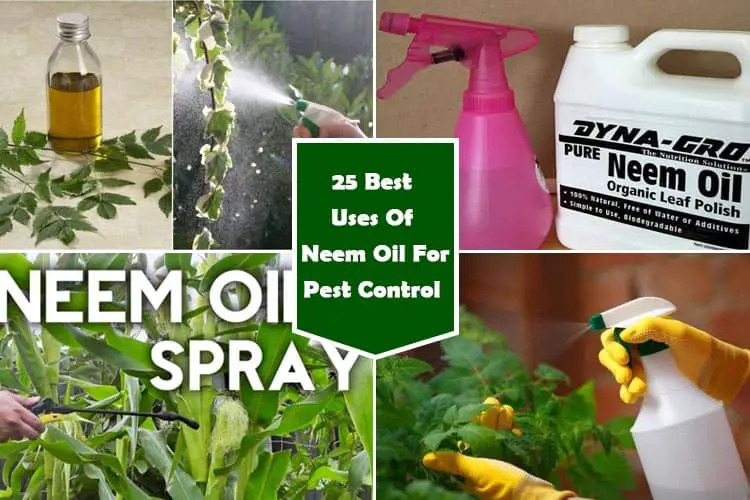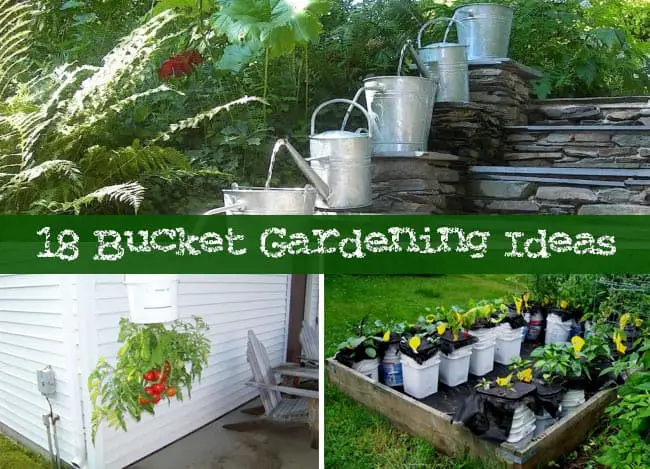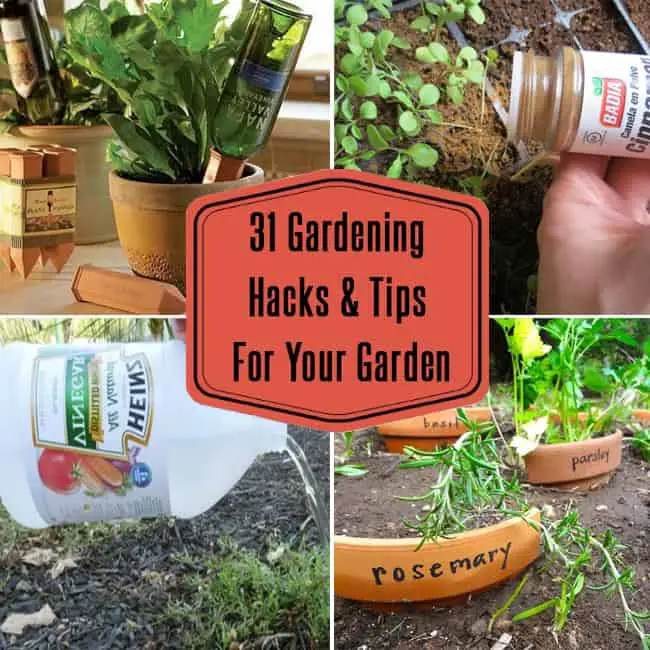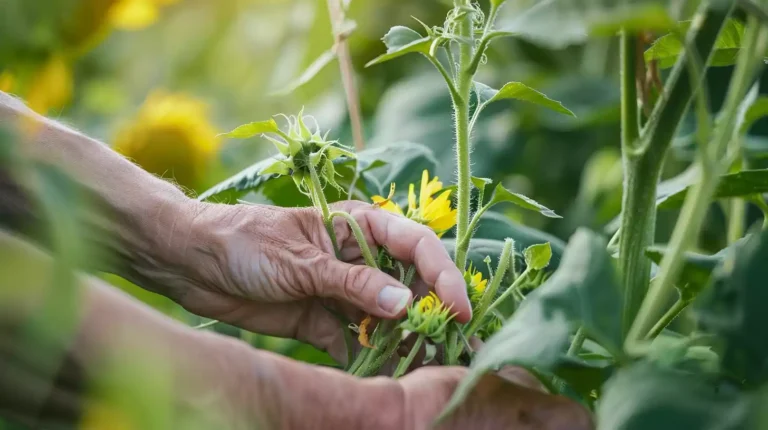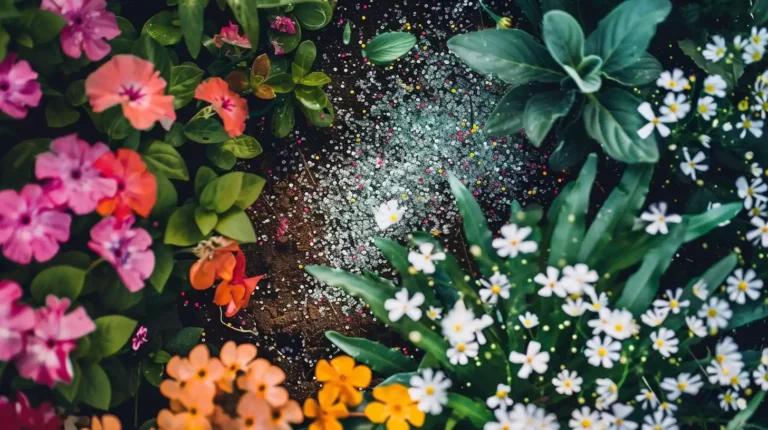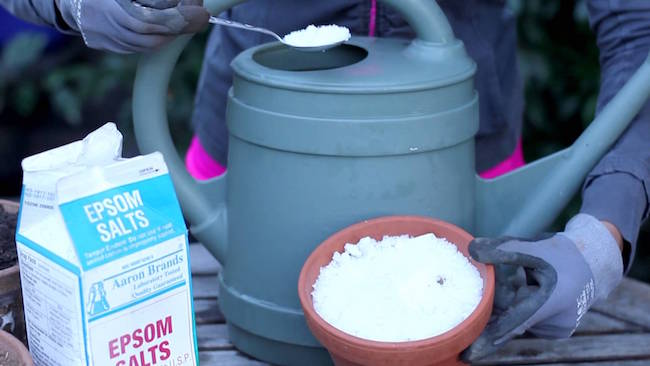8 Amazing Uses Of Vinegar In The Garden
Vinegar in the garden serves a multitude of purposes. It acts as a natural herbicide, effectively combating weeds by dehydrating them. Vinegar also helps in preventing fungal diseases by creating an unfavorable environment for fungi, particularly when sprayed on plant leaves.
It can boost plant growth by balancing soil pH levels, repelling pests, and aiding in nutrient absorption. Furthermore, vinegar can be used as an eco-friendly method for pest control, an animal deterrent, produce disinfectant, and even a cleaner for garden tools.
Its versatility makes it a valuable asset for gardeners seeking natural and effective solutions.
Main Points Covered Below
- Natural herbicide with 5% acetic acid for weed control.
- Prevents fungal diseases on plants with cost-effective spray.
- Balances soil pH for optimal plant growth and nutrient absorption.
- Acts as a natural pest repellent for eco-friendly pest control.
- Disinfects produce, extends shelf life, and removes contaminants.
Natural Herbicide
I often use white vinegar as a weed killer in my garden due to its 5% acetic acid content. This natural herbicide is effective at desiccating and killing weeds upon contact by causing cellular dehydration.
While it works well on young weeds, larger or perennial weeds may require multiple applications for complete eradication. White vinegar with a 5% acetic acid concentration is a good balance between effectiveness and safety.
Higher concentrations, although faster acting, can also pose risks such as potential skin irritation and harm to surrounding plants if not used carefully.
When applying white vinegar as a herbicide, it’s essential to target the weeds directly, ensuring the vinegar makes contact with the foliage to maximize its effectiveness. Regular monitoring and spot treatment can help control weed growth without resorting to synthetic chemicals.
Understanding the limitations of vinegar as a herbicide, particularly on established perennial weeds, can help manage expectations and develop a more sustainable weed control strategy.
Can Vinegar Also Be Used to Kill Weeds in the Garden?
Vinegar is a great option for organic weed control in your garden. The uses of vinegar in the garden include killing weeds by spraying it directly on the unwanted plants. The acetic acid in vinegar works to dry out the weed, making it an effective and natural way to keep your garden weed-free.
Prevent Fungal Diseases
I’ve found that using white vinegar in the garden can be a powerful tool in preventing fungal diseases on plants.
The acidic nature of vinegar creates an inhospitable environment for fungi, safeguarding leaves and stems from infections like powdery mildew.
Regular application of diluted vinegar serves as a cost-effective and eco-friendly method to maintain the health of my garden plants.
Fungal Disease Prevention
Preventing fungal diseases in the garden can be effectively achieved by utilizing the natural fungicidal properties of white vinegar. White vinegar’s vital antifungal properties play a crucial role in maintaining plant health and warding off common fungal infections like powdery mildew.
Here are some practical tips for fungal disease prevention using white vinegar:
- Mix a solution of white vinegar and water to spray on plant leaves.
- Apply the solution preventatively, especially during humid weather.
- Focus on the undersides of leaves where fungal growth often starts.
- Use a spray bottle for precise application on affected areas.
- Repeat the process regularly to create a protective barrier against fungal diseases.
Vinegar as Fungicide
To effectively combat fungal diseases in your garden, harness the natural fungicidal properties of white vinegar as a preventive measure. White vinegar acts as a significant fungicide, helping to control powdery mildew and protect plants from harmful bacteria and fungi that lead to diseases.
When used in your garden, vinegar can play an essential role in maintaining plant health by preventing the onset of fungal infections. Its effectiveness extends to enhancing compost quality by speeding up the decomposition process. Moreover, vinegar can aid in balancing soil pH levels, contributing to healthier plant growth and development.
Incorporating vinegar as a fungicide in your gardening routine can be a practical and natural way to promote a thriving garden environment.
Garden Health Benefits
Improving garden health through the prevention of fungal diseases is essential for promoting thriving plant vitality and overall garden wellness. Using white vinegar can help achieve this goal effectively. Here are some key benefits:
- Acetic acid: White vinegar’s acetic acid content acts as a natural fungicide, preventing fungal diseases on plants.
- Soil pH: Vinegar helps balance soil pH levels, creating an ideal growing environment for plants and enhancing nutrient absorption.
- Weeds: Applying vinegar can help control weeds, reducing competition for nutrients and sunlight among plants.
- Nutrient boost: Vinegar provides essential nutrients like potassium and phosphorus, promoting overall plant health.
- Compost acceleration: The acidic properties of vinegar can speed up the decomposition process in compost piles, enriching the soil with organic matter.
Boost Plant Growth
I’ve discovered that using white vinegar in the garden can help balance soil pH levels, creating the perfect environment for plants to grow healthily and absorb nutrients effectively.
White vinegar acts as a natural pest repellent, safeguarding plants from harmful insects that could hinder their growth.
These factors combined make white vinegar a valuable tool for boosting plant growth in the garden.
Soil Ph Balance
Regularly applying white vinegar to your garden soil can effectively boost plant growth by balancing its pH levels. By lowering the pH of the soil, vinegar creates an environment where plants can better absorb essential nutrients, promoting their healthy development and vitality.
Here are some key benefits of using vinegar to maintain soil pH balance:
- Prevents fungal diseases: Vinegar can help prevent fungal diseases that may otherwise hinder plant growth.
- Accelerates compost decomposition: Using vinegar in compost can speed up decomposition, enriching the soil with valuable nutrients.
- Contributes to overall plant care: Maintaining important soil pH with vinegar is a critical aspect of ensuring the overall health and success of your garden.
- Enhances nutrient absorption: Balanced pH levels enable plants to more efficiently absorb nutrients from the soil.
- Optimizes growing conditions: Vinegar creates ideal conditions for plant growth by balancing soil pH levels.
Pest Repellent
Balancing soil pH with vinegar not only promotes plant growth but also serves as a natural pest repellent in the garden, effectively deterring common pests and contributing to healthier plant development.
White vinegar acts as a deterrent for pests such as aphids, caterpillars, ants, and slugs, protecting plants from harmful bacteria and fungi. It helps control powdery mildew, preventing fungal diseases.
Utilizing white vinegar in garden maintenance can also keep animals like rabbits, deer, and cats away, minimizing potential damage to plants. Incorporating white vinegar aids in eliminating fruit flies around fruit trees, maintaining a pest-free environment.
Below is a table summarizing the benefits of using vinegar as a pest repellent in the garden:
| Benefits | Usage |
|---|---|
| Deters common pests | Spray on plants |
| Protects from bacteria | Apply to soil |
| Controls powdery mildew | Use as a foliar spray |
| Keeps animals away | Create a perimeter spray |
| Eliminates fruit flies | Spray around fruit trees |
Pest Control
To effectively control pests in the garden, vinegar proves to be a versatile and natural solution. Vinegar is a valuable tool in pest control as it can help in various ways:
- Repelling Common Pests: Vinegar is effective in repelling garden pests such as aphids, caterpillars, ants, and slugs. Its strong scent acts as a deterrent, keeping these insects away from plants.
- Protection Against Fungal Infections: Vinegar aids in controlling powdery mildew on plants, preventing fungal infections that can harm the garden. Regular application can protect plants from these common issues.
- Natural Bacteria and Fungi Control: By using vinegar, gardeners can naturally protect their plants from harmful bacteria and fungi that may cause diseases and reduce plant health.
- Fruit Fly Management: Vinegar can also assist in getting rid of fruit flies around fruit trees. This helps in maintaining a healthy environment and contributes to overall pest control efforts in the garden.
- Eco-friendly Solution: Vinegar is a safe and eco-friendly alternative to chemical pesticides, ensuring that pest control is done without harming the environment.
Animal Deterrent
When it comes to deterring animals in the garden, vinegar’s effectiveness may vary depending on the specific animal and the method of application.
While soaking rags in vinegar is a common DIY method, it may not provide a long-term solution for repelling animals. Some animals aren’t deterred by vinegar because it evaporates quickly, diminishing its effectiveness over time.
In such cases, solutions containing ingredients like blood, milk, or egg can work better against certain animals. It’s essential to contemplate the habits and preferences of the animals you’re trying to deter when choosing a repellent.
While vinegar can be useful for preventing ants from entering the house, it mightn’t be the most reliable long-term solution for repelling animals in the garden.
Experimenting with different repellents and observing their effectiveness is key to finding an effective animal deterrent that works for your specific garden environment.
Produce Disinfectant
Vinegar serves as a natural disinfectant for fresh produce, effectively guaranteeing bacteria and pesticides. It’s a safe and simple way to assure food safety in the garden.
Here are some practical tips for using vinegar as a produce disinfectant:
- Extend Shelf Life: Washing fresh produce with a vinegar solution can help prevent mold and bacterial growth, keeping your fruits and vegetables fresher for longer.
- Remove Contaminants: Soaking and rinsing fruits and vegetables in a vinegar solution can effectively eliminate dirt, residues, and contaminants, making sure that your produce is clean and safe to eat.
- Refresh Wilted Produce: Revive wilted produce by soaking them briefly in a mixture of vinegar and water. This can help freshen up the produce and prolong its usability.
- Safe and Effective Cleaning: Using vinegar to clean fresh produce is a safe and effective method that promotes food safety in your garden, giving you peace of mind when consuming your homegrown fruits and vegetables.
Eco-Friendly Weed Control
In maintaining a thriving garden, addressing weed control in an eco-friendly manner isn’t only beneficial for plant health but also for the overall sustainability of the environment.
One effective eco-friendly method for weed control is using white vinegar as a natural herbicide. White vinegar serves as a safe alternative to chemical weed killers, ensuring that harmful substances aren’t introduced into the garden ecosystem. By directly applying white vinegar to weeds, it helps in eliminating them efficiently while being gentle on the surrounding plants.
This method not only aids in controlling weeds but also promotes a healthier environment for beneficial insects and organisms in the garden. Vinegar can also be utilized to clean garden tools, ensuring that they’re free from any harmful residues and maintaining their longevity.
This dual-purpose approach of using vinegar for weed control and cleaning garden tools exemplifies its versatility and eco-friendly nature, making it a valuable asset for garden maintenance.
Garden Tool Cleaner
One essential aspect of garden maintenance involves ensuring that tools are kept clean and free from dirt and rust buildup. Using vinegar as a garden tool cleaner isn’t only effective but also eco-friendly.
Here are some key points to keep in mind when cleaning garden tools with vinegar:
- Effectiveness: Vinegar can effectively break down dirt and grime on the surfaces of garden tools.
- Rust Removal: It can help remove rust from metal tools when soaked in undiluted vinegar.
- Eco-Friendly: The acidic properties of vinegar make it a natural and eco-friendly option for cleaning gardening equipment.
- Disease Prevention: Using vinegar to clean tools can help prevent the spread of diseases and pests in the garden.
- Sanitization: A mixture of vinegar and water can be used to sanitize and disinfect garden tools after use.
Final Thoughts
Vinegar is a versatile and cost-effective tool for maintaining a healthy garden. While some may be concerned about the strong scent of vinegar, rest assured that it will dissipate quickly, leaving behind only benefits for your plants.
By incorporating vinegar into your gardening routine, you can naturally control pests, diseases, and weeds, all while promoting plant growth and overall garden health. Give vinegar a try and see the difference it makes in your garden!

